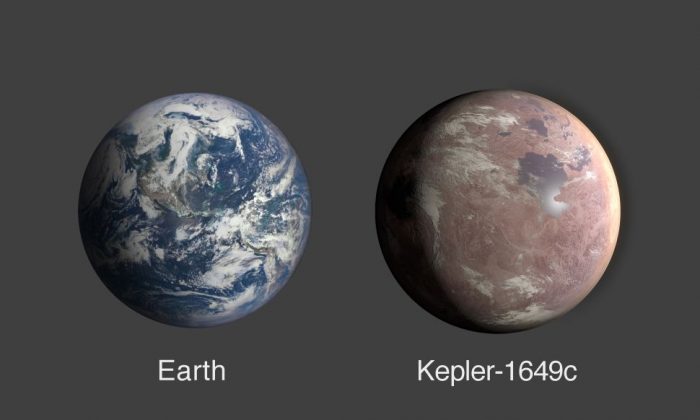NASA scientists have just found an earth-like planet almost its size that may be capable of supporting life as we know it.
The planet was found while analyzing data gathered by NASA’s planet hunting Kepler spacecraft, which was retired in November 2018.
The exoplanet, Kepler-1649c, circles a red dwarf star that lies 300 light-years from Earth, a new study reports.
Kepler-1649c completes one orbit every 19.5 Earth days, putting the alien planet in its host star’s “habitable zone,” the just-right range of distances where liquid water could exist on a world’s surface.
“This intriguing, distant world gives us even greater hope that a second Earth lies among the stars, waiting to be found,” Thomas Zurbuchen, associate administrator of NASA’s Science Mission Directorate, said in a statement.
Kepler-1649c is just 1.06 times the size of Earth and gets 75% of the stellar energy influx that our planet gets from the sun.
This combination of characteristics makes the newfound world quite special indeed.
“There are other exoplanets estimated to be closer to Earth in size, such as TRAPPIST-1f and, by some calculations, Teegarden c,” NASA officials wrote in the same statement.
“Others may be closer to Earth in temperature, such as TRAPPIST-1d and TOI 700d.
“But there is no other exoplanet that is considered to be closer to Earth in both of these values that also lies in the habitable zone of its system.”
NAN

